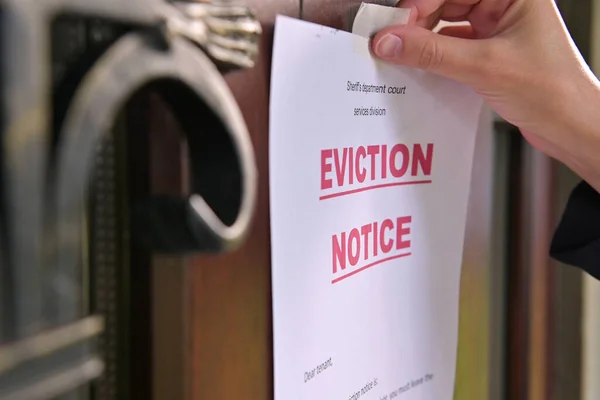Evictions can be challenging, but following the correct legal steps makes the process smoother. If a tenant fails to pay rent, breaks the lease, or engages in illegal activities, landlords must follow a structured approach.
Step 1: Choose the Right Notice
Pick the appropriate notice based on the situation:
- JDF 99 A – Demand for Compliance: For missed rent or lease violations.
- JDF 99 B – Termination of Tenancy: For repeated or severe violations.
- JDF 99 C – No-Fault Eviction: When a lease isn’t renewed.
Post the notice on the front door and wait for the required period. If the deadline falls on a weekend or holiday, it extends to the next business day.
Step 2: Prevent Constructive Eviction
Tenants can claim constructive eviction if the rental is unlivable due to a lack of maintenance, such as no heat or water. To avoid legal trouble, landlords must ensure their property is safe and habitable.
Step 3: Get Legal Help if Needed
If the tenant disputes the eviction, consider hiring an eviction attorney for guidance. Searching for eviction attorney near me can connect you with local professionals.
Step 4: Explore Tenant Assistance Programs
Some tenants may qualify for eviction assistance through financial aid programs and legal resources.
Final Steps
If the tenant fixes the issue, eviction may not be necessary. If not, landlords can file an eviction case in court. Always check local laws to stay compliant.
For more information and to stay updated, please visit coloradojudicial.gov for more information.
Disclaimer: This post provides a general summary of eviction procedures based on information from ColoradoJudicial.gov. Integrity Realty Management does not provide legal advice and makes no representations or warranties regarding the accuracy, completeness, or applicability of this information to individual circumstances. This post is for informational purposes only and should not be relied upon as legal guidance. For legal advice specific to your situation, please consult a qualified attorney.

